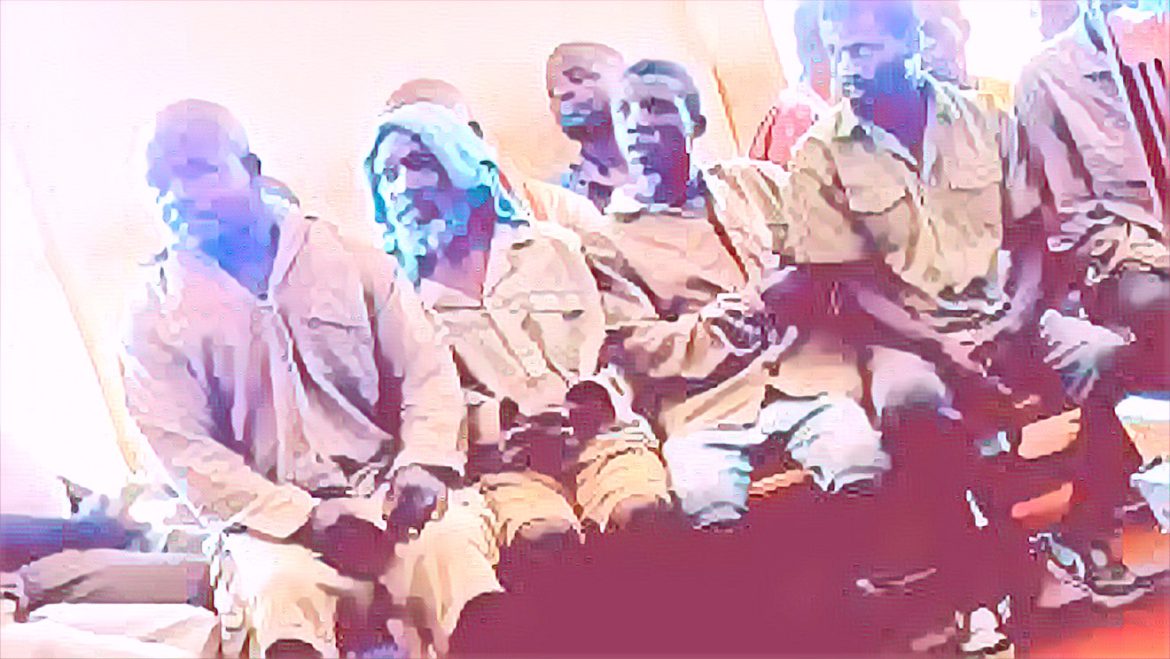In Mashonaland West province, Zimbabwe, a traditional leader is urgently calling for governmental intervention against Madzibaba Ishmael’s apostolic church. Headman Inzwanai Musonzwa of Mhondoro village in Nyabira has raised significant concerns over practices at the church, including child marriages and denial of essential health services, leading to severe abuses against minors.
The Johanne Masowe eChishanu sect, led by Ishmael Chokurongerwa (also known as Madzibaba Ishmael), is currently facing legal scrutiny due to the alleged involvement of its members in various crimes, such as child abuse and violations of the country’s birth and death registration laws. These accusations paint a grim picture of a community that has been severely affected by the practices of the church, which purportedly condones and enables systemic abuse.
Headman Musonzwa’s plea is rooted in troubling reports of underage girls being coerced into marriages within the sect. “There are child marriages happening at the church, and therefore I am asking for the protection of children from abuse,” Musonzwa stated during an exclusive interview with Destiny TV, a sister outlet of NewZimbabwe.com. He elaborates on the dire consequences of these unions: many young girls fall pregnant, and some tragically die at the shrine during childbirth due to prohibitions on seeking hospital care.
Alice Chapungu, a village health worker and wife of the headman, has reported that the doctrines of the church are causing preventable deaths in her community. Both children and adults are being prevented from accessing medical facilities due to the restrictive practices of the church. Chapungu’s role as a healthcare provider makes her insights into the negative impact of these practices on community health and well-being more valuable. She is fighting for the rights of every child to be safe, healthy, and able to attend school. These issues go beyond health concerns and affect the fundamental rights of children to education and proper identification. Many children are unable to obtain birth certificates because of the church’s opposition to formal registration of births, which is crucial for accessing educational opportunities and healthcare services.
There are legal implications to the situation at hand. Recently, two women associated with Madzibaba Ishmael’s sect were brought to court on charges of human trafficking, which highlights the potential criminal activities linked to the church’s operations. In March 2024, Danai Tigere and Veronica Chitanda were arrested following a police raid that rescued several people, including minors, from a Harare residence. This underscores the severity of the sect’s alleged offenses.
The controversy also includes the suspicious circumstances surrounding the death and hasty burial of Hazel Chikurume at Lily Farm. This suggests that the church may be trying to obscure the true nature of its practices. These incidents have led to calls for more stringent enforcement of existing laws and stricter oversight of religious organizations to protect vulnerable populations.
Complicating the matter is the church’s endorsement of polygamy, which, according to Musonzwa, exacerbates the exploitation of women and girls. He describes disturbing scenes where men in the church marry multiple women and cohabit with them in constrained, inappropriate conditions, which he views as another layer of abuse perpetuated under the guise of religious freedom.
There is an urgent need for action regarding pressing issues in Mashonaland West. Local leaders, health workers, and concerned citizens agree that a fundamental shift is necessary in how religious and cultural practices are regulated and monitored. The goal is not only to stop harmful practices but also to ensure they do not violate human rights.
The appeal of the headman to higher authorities shows that intervention is desperately needed to dismantle oppressive structures within the church. These structures endanger the physical and psychological well-being of children and women. The resolution of these issues is seen as crucial to restoring societal norms and protecting future generations from similar abuses, not only in Nyabira but also beyond.
The situation in Mashonaland West reminds us of the delicate balance between respecting religious freedom and enforcing laws designed to protect vulnerable individuals. It highlights the need for vigilant oversight of religious practices to ensure they align with national and international standards for human rights and child protection.
Source: New Zimbabwe


